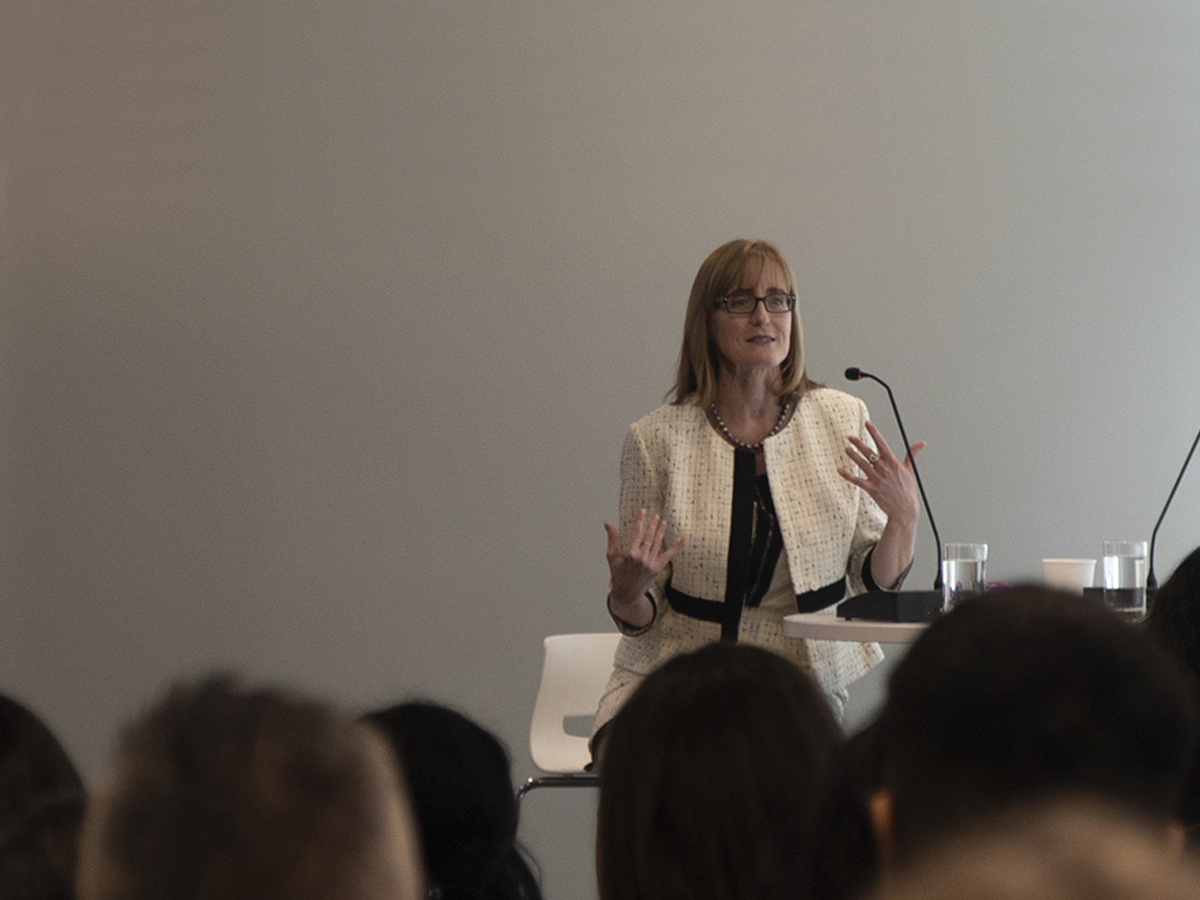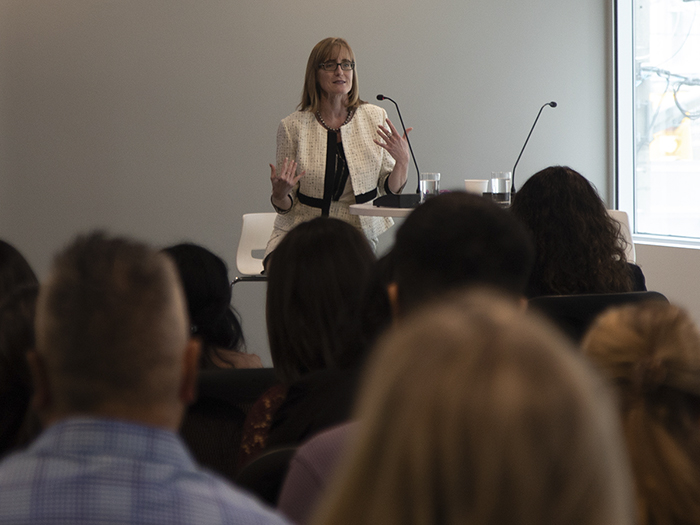
‘We can now access talent right across the country’
 Pamela Steer took on her role as president and CEO of CPA Canada in April 2022—at a time of unprecedented change in workplace culture (Christian Carter)
Pamela Steer took on her role as president and CEO of CPA Canada in April 2022—at a time of unprecedented change in workplace culture (Christian Carter)
It has been a year since Pamela Steer, FCPA, FCA, CFA assumed the role of president and CEO of CPA Canada. To mark her anniversary, we asked her to share what she learned from leading through a monumental shift in workplace culture and how the past year has shaped her views on the future of work and the profession.
CPA CANADA: You started as CEO amid unprecedented challenges to run an organization as the COVID-19 pandemic forced people apart. What are the biggest leadership lessons you have learned from your experience?
PAMELA STEER (PS): I came into this role at the tail end of COVID. In fact, I started my first day with a positive COVID test, shivering my way through delivering a town hall from my kitchen table. It was a time when some workers were still concerned about issues such as vaccine mandates and the safety of coming into a workplace, which is completely understandable.
Now, we’re dealing with the aftermath of a pandemic that forced the whole planet to find new ways to work. We survived and learned a great deal about the challenges and benefits of working from outside the traditional workplace. We’re left trying to catch up as a society and adapt to new norms.
Now that the worst is seemingly behind us, I try to be intentional about treating employees with respect—as adults—to make decisions for themselves about when it’s right to come into the office. Balance is really important and it’s different for every person and every team. We have super smart and dedicated people and I trust they can figure out how they do their best work.
CPA CANADA: What was lost and what was gained in that shift to remote work?
PS: COVID accelerated the advancement of technology for remote work. Because of that, we can now access talent right across the country in a way we couldn’t before. That helps us create a more diverse workforce and having that diversity of views is really important to us as a national organization.
At the same time, this new work environment cannot mean ‘never in person.’ Culture is much stickier and much more organic in person. That connection is particularly vital when you need to resolve conflicts or solve problems creatively. On screen, you just cannot build the same type of relationships.
There’s also what I call the ‘apprenticeship effect’—the learning you can gain from casual interactions and collisions that can only happen in person. Professional firms are really feeling the effects of that lack of interaction. In the past, you’d all be together, learning from overhearing others and asking questions or from the partner who invites a newer CPA to sit in on an important meeting.
That apprenticeship piece is what a lot of workers who began their careers during the pandemic don’t realize they are missing. They’re not getting the social skills development they need to progress.
PS: The hybrid model is here to stay, but probably not exactly as it is right now. We can’t predict what it will become because people and technology will evolve in ways we don’t expect.
I think it’s important to embrace hybrid because it’s here, it’s not going away. People will vote with their feet. Organizations that mandate a return risk making employees resentful; they could become less engaged, less productive or leave for an organization that offers more flexibility.
Getting people back is so much better with honey than with vinegar, so we need to create opportunities where people want to be together—to make it worth their commute.
Leaders need to figure out when being in person matters and how many of those moments need to happen in a given period to develop cultural cohesiveness. We need to figure out how to juice those moments for all they’re worth and make sure people find them impactful and memorable.
CPA CANADA: When you stepped into the role, you talked about some of the opportunities for the profession that you were most excited about, including environmental, social and governance reporting, anti-money laundering and the new Competency Map. How has your outlook on those opportunities changed in the past year?
PS: The progress being made on the sustainability front is the biggest one. In 2022, the IFRS established the International Sustainability Standards Board’s (ISSB’s) Montreal office. Now, the Canadian Sustainability Standards Board (CSSB) has officially launched and we expect standards to come out in June. My excitement level is still high, but now I am also a little anxious because it’s really happening and the pressure is on to implement them.
With all the capacity-building required, I see huge opportunities for our profession, but also a huge burden for the profession, because there won’t be enough professional accountants to go around to do the work that will be needed over the next many years.
CPA CANADA: You have made yourself very accessible to employees through appearances in town halls and ‘Ask Me Anything’ sessions: What is your most frequently asked question in the past year?
PS: What has surprised you most?
CPA CANADA: And what has surprised you most?
PS: In numerous conversations with our international peers over the past year, I have been truly amazed by the outsized level of influence and importance that the Canadian accounting profession carries on the global stage, given the size of our population. Whether it be about sustainability standards or regulatory compliance, when Canada speaks, the world listens.
CPA CANADA: We’ve spent a lot of time reflecting on your first year, but we’ve already entered a new fiscal year and know you are focused on the future. What do you hope to accomplish over the next year?
PS: Given the huge demand for CPAs in the marketplace, it’s a really pivotal time for the profession and for our organization. We need to get out the message to a new generation that there are myriad possibilities for someone with a CPA designation. Whether you’re a young student or someone looking to change careers, becoming a CPA unlocks a door to super cool, well-paying and flexible jobs. There is no shortage of demand for skilled workers and it’s such a versatile designation that offers tremendously varied and interesting career choices. This is a message that is near and dear to me and I plan to use my platform to help spread it.
MORE ON MAKING A DIFFERENCE IN THE PROFESSION
Read about Pamela Steer’s 2022 appointment as CEO and learn about the role CPAs can play in ESG initiatives, including those focusing on the social pillar. Check out the CPA Competency Map 2.0 and make sure to sign up for CPA Canada’s 2023 ESG symposium, May 30 and 31.